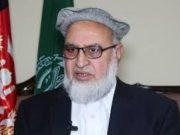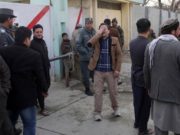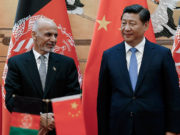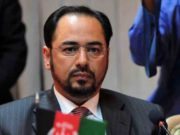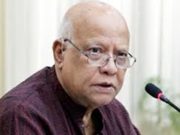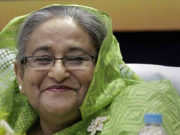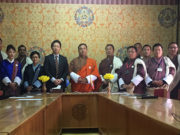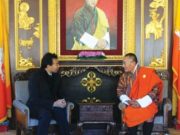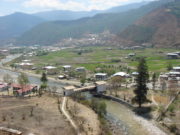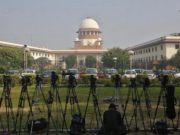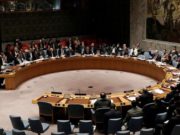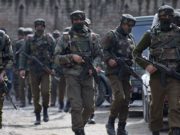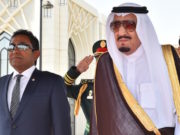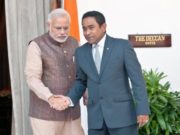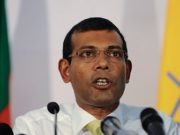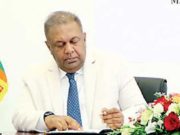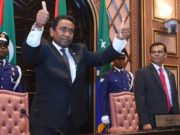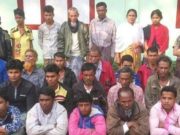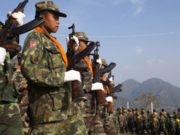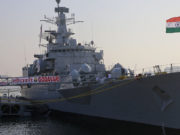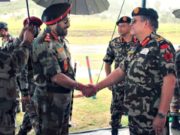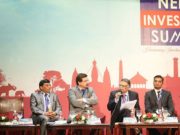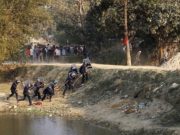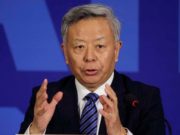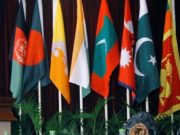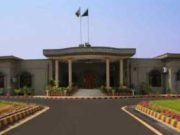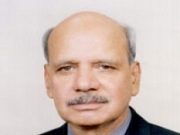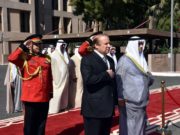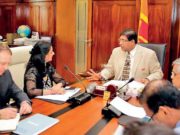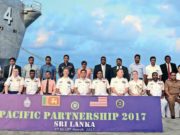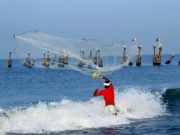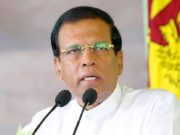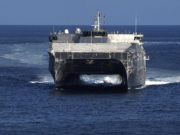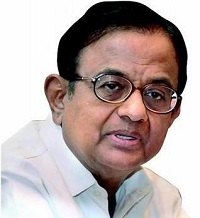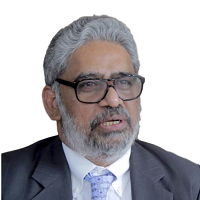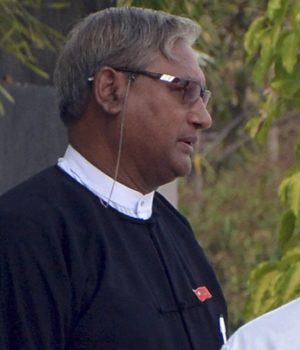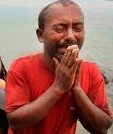Coalition government of Sri Lanka is having a hard time maintaining the balance between the two opposition side in this region’s Geo-political scenario. On one hand China’s investment and financial assistance is difficult to ignore for continuing national development amid huge foreign liabilities, on the other hand United States and their south Asian ally is creating pressure in the local political situation.
It is widely considered that two years ago the formation of coalition government was largely backed by India and their western partners. On contrast former Rajapaksa government was believed to be biased towards China. But still the current government cannot ignore China’s influence on the country as they are giving huge financial assistance that is keeping the country afloat when the county’s economy seems drowned by foreign debt. In addition, China seems more liberal in investing on the development projects of the country.
Now the recent polarization in south Asian geopolitics is causing pressure of Sri Lanka. Especially after Hambantota port was leased to China, the other side in the rivalry got more displeased. But the west is not providing the same support as China which Sri Lanka so desperately needs. Aside from Japan other parties from this axis is not in position form large investment.
In this situation to keep SL government in check delegations from USA is visiting the country in a regular basis. By taking loan from western influenced IMF with unpopular terms and condition, the current government is losing public support. All in a while international community is pressuring SL to form special court for the trial of crimes against humanity during the Tamil rebellion. China has taken a strong position against this siding with the government. Overall Sri Lanka’s Sirisena-Bikramasingera coalition government facing a huge dilemma.
A delegation of the United States Congress called on President Maithripala Sirisena at the President’s Official Residence last Friday and held discussions about the steps to be taken to further strengthen bilateral relations. It was the second group of Congress members to visit Sri Lanka during February underscoring the intensifying geo-strategic tensions generated by the US military buildup in South Asia. The second delegation concentrated more on sensitive political issues. The US embassy in Colombo said the delegation came to “discuss strategic issues affecting vital sea lanes in the Indo-Pacific and “to learn more about economic reforms” that could increase bilateral trade and investment between the two countries.
Delegation leader Goodlatte said the US was pleased with the steps taken by “the consensual government to strengthen democracy, individual freedom, and reconciliation.”This coalition was formed not to “strengthen democracy” but to stabilize the government, which has changed foreign policy in favour of the US and its ally India.
President Sirisnea thanked the US for resuming training of Sri Lankan armed force members, and urged them to consider additional training slots for providing technical training to naval officials. He thanked the US for the development assistance provided to Sri Lanka over the years.
According to a government statement, Sirisena said: “Sri Lanka has an important responsibility regarding regional security in addition to national security as the country is situated at an important strategic location in the international maritime route”
Sirisena halted all investment projects funded by China as soon as he took office. However, his cash-strapped government has since been compelled to seek Chinese investments and loans, and is planning to sell the controlling shares in the Hambantota Magampura Port to a Chinese company.
The port was built by Chinese companies, largely funded by a Chinese loan, during the Rajapaksa government. The US and India branded it as part of China’s “String of Pearls” strategy to allegedly dominate the Indian Ocean and beyond. In response, Sirisena and Wickremesinghe have declared that no Chinese military presence will be allowed in Hambantota.
The US delegation reportedly asked Tamil National Alliance (TNA) leaders “what they felt about China’s and India’s interest in Sri Lankan political affairs.” The Island reported that TNA head and parliamentary opposition leader, R. Sambandan, replied that China did not interfere in the country’s internal affairs, whereas India continued to demonstrate interest in constitutional reforms.
The TNA, which represents the Tamil capitalist elite, fully backed Washington’s 2015 regime-change operation and supports the current government.
Intensifying the geopolitical tensions, the US is aggressively working to develop its military buildup. A Sri Lanka Navy statement said top-level discussions took place when Brigadier General Brian W. Cavanaugh, the Deputy Commander of US Marine Corps Forces, Pacific, met with Sri Lankan Navy Vice Admiral Ravindra Wijegunaratne in Colombo on Tuesday.
The visits by US Congress delegations and Pacific Command officers further draw Sri Lanka into the maelstrom of mounting global tensions and war dangers.


